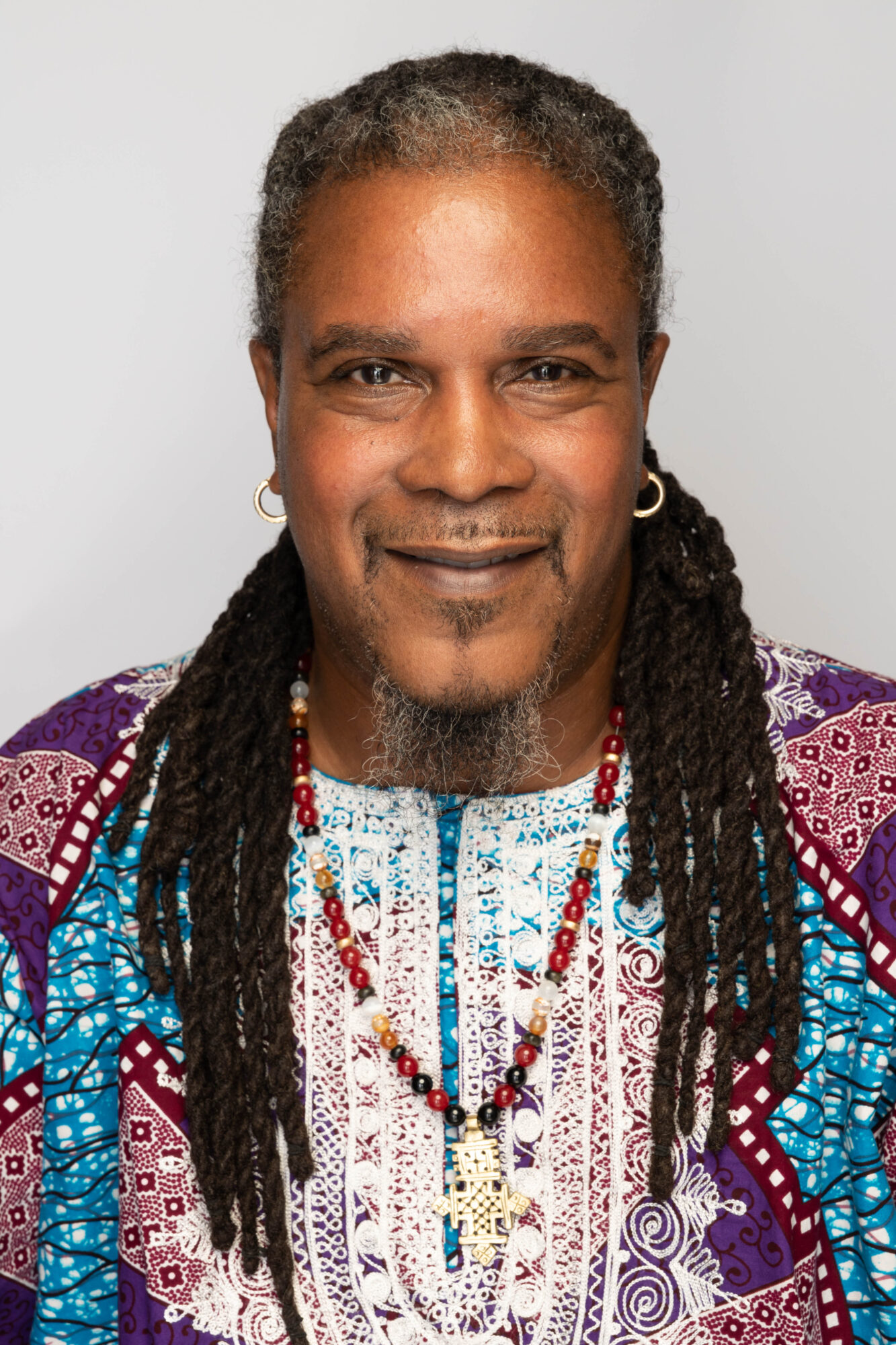Queer(ing) Acts / Act(ing) Queerly
The Acts of the Apostles (Acts), commonly understood as the second volume of the Gospel of Luke, can be thought of as a queer text in as much as it is neither a gospel nor an epistle. It joins the Apocalypse of John as a different kind of witness in the New Testament canon. Acts is part novel, part history, part legend, while expanding the boundaries of those genres into its own amalgamation of each. Maya Kotrosists argues that rather than a history of the early Christian Church, as many scholars assume, Acts reads more as a diasporic account of one Jewish sect (the Way) struggling with identity and belonging, as they live into the teachings of Jesus Christ and the leading of the Holy Spirit, within the disruptive and disorienting world of Roman Imperialism. Acts continues the “orderly account” that its author offers to the most excellent Theophilus (Luke 1:1-2; Acts 1:1-2) beginning with the instructions Jesus gives to the disciples before his ascension into heaven, and then to the adventures that ensued in the life of the early church through their missionary activities, with particular focus on Peter and Paul.
To think and read queerly with Acts is to note how its rich narratives disrupt (and are sometimes complicit with) what Michael Warner describes as “regimes of the normal,” particularly in the intersection of sexuality, nation, race, class, gender, and ability, among other marginalizing factors. Queer biblical interpretation is a contemporary approach that seeks to uncover and re-examine the presence, roles, and significance of characters that might be identified as LGBTQ+ in today’s definitions of sexuality. This approach also, and perhaps more importantly, reveals the ways in which asymmetries of power, “gender trouble,” the unsettling of heteropatriarchy, among other cultural and religio-political factors, become the work of interpreters to bear witness in both the ancient world and present day. Lived experiences and challenges are read in conversation with scriptures to articulate the stakes for both ancient and present-day contexts.
Additionally, Queer biblical interpretation promiscuously cultivates relations with texts, culture, space, land, and nation in defiance to hegemonic forces within and outside of the Church. Taking its cues from audacious disruptions like the 1969 Stonewall Riots, the 1987 AIDS Coalition to Unleash Power (ACT UP), and the 2013 #BlackLivesMatter Movement, Queer biblical interpretation disrupts compulsory heterosexuality, homophobia, trans antagonisms, ostracization, and shame visited upon LGBTQIA+ people, especially from the Church as it uses the Bible, church doctrines, and malicious practices to marginalize its members and queer communities. It reclaims the agency, dignity, intrinsic value, and divine beloved-ness of its community.
Acts 1 unfolds in three parts: a transitional summary that bridges the end of Luke’s gospel with the beginning of Acts (vv. 1-5), the ascension of Jesus (vv. 6-11), and the selection of Matthias as an apostle to replace Judas (vv. 12-26). The promise of the Holy Spirit and the commission to be witnesses are significant hermeneutical keys for Queer(ing) Acts and act(ing) queerly.
6 So when they had come together, they asked him, ‘Lord, is this the time when you will restore the kingdom to Israel?’ 7He replied, ‘It is not for you to know the times or periods that the Father has set by his own authority. 8But you will receive power when the Holy Spirit has come upon you; and you will be my witnesses in Jerusalem, in all Judea and Samaria, and to the ends of the earth.’ 9When he had said this, as they were watching, he was lifted up, and a cloud took him out of their sight. 10While he was going and they were gazing up towards heaven, suddenly two men in white robes stood by them. 11They said, ‘Men of Galilee, why do you stand looking up towards heaven? This Jesus, who has been taken up from you into heaven, will come in the same way as you saw him go into heaven.’
The promise of the Father through the baptism of the Holy Spirit (Acts 1:4-5) foreshadows the day of Pentecost in Acts 2:1-13. It reframes the concern with the restoration of ancient Israel’s kingdom with the activation of the rushing wind of the Holy Spirit. Here is an example of human will being subjugated to divine will, or a reminder of the ways in which the disciples continue to ask the wrong questions. The power we receive is the outpouring of God’s Spirit “upon all flesh so that everyone who calls upon the name of the LORD shall be saved (compare Joel 2:28-32/Acts 2:14-21).” Traditional heteronormative translations make the Holy Spirit a male (he), but this is a misleading and theologically/grammatically incorrect rendering of The Holy Spirit’s identity. The Holy Spirit/Spirit of the LORD (toũ hagíou pneúmatos) is grammatically neuter in Koine Greek. In today’s terms we might assign they/them pronouns to the Holy Spirit.
Reading “the promise of the Father” queerly in Luke-Acts (Luke 11:13; 24:49; Acts 1:4-5) means that the non-binary Spirit of the LORD announced in the world of Joel 2, flows through the annunciations to Mary and Elizabeth (Luke 1), gaining concurrence with the prophecy of Isaiah 61 that inaugurates the Lukan Jesus’s ministry (Luke 4:17-19), offered by Jesus to all (Luke 11:13; Acts 1:4-5), and epitomized on the day of Pentecost in Acts 2:1-13, is our promise as well, as we declare our dignity and beloved-ness in a “broken and fearful [Church] world.”The believers in the upper room in their cavalcade of nations are baptized with tongues of fire and no one changes! They do not assimilate into a beige Judeo-Christianity but rather became more of who they were, empowered by the Spirit to understand one another, each speaking in their own languages (2:1-13). Unity was established in diversity (of nation, class, gender, sexual orientation, etc.) not in homogeneity.
The ascension of Jesus is critical for at least two reasons. First, he must ascend so that he can, in the words of the Nicene Creed, “come again in glory to judge the quick and the dead” and after doing so, host the great banquet in heaven(Luke 22:14-18).
Second, Jesus’s final earthly commission, according to Luke-Acts, is for the disciples to be his witnesses “in Jerusalem, in all Judea and Samaria, and to the ends of the earth (Acts 1:8).” What are the conditions of possibility for being and bearing queer witness?
In general terms, a witness is a person who sees an event, like a crime or an accident, and testifies to what they have seen or heard. A witness has knowledge of an event based on what they have observed or experienced. In theological terms, being or bearing witness affirms divine teaching or inspiration even though it might cost one’s life or privilege, as in martyrdom (Acts 1:8 ésesthé mou mártures– “you will be my witnesses”). The Greek word we translate as “witness” is etymologically related to the word martyr. Being witnesses of Jesus suggests that we are to act like his disciples and continue the ministry he taught and modeled for us as the earliest disciples walked with him in his life, his death, his resurrection, and his ascension. This is how we should relate to the community of faith and to the world. The earliest disciples often got it wrong despite their proximity to Jesus. Present day disciples get it wrong when power and privilege prevent an appreciation of unity in diversity.
Queer witness includes activating the gifts, talents, and passions made evident by God’s promise of the Spirit within and/or outside of the Church (see Mark 6:7-13; Matthew 10:5-15; Luke 9:1-6; Acts 18:5-6). Queer witness includes honoring the histories and telling the stories of the Gay Liberation movement within and/or outside of the Church including but not limited to: Sylvia Rivera, Marsha P. Johnson, the unnamed trans and non-binary protesters at the Stonewall Inn, Harvey Milk, Bayard Rustin, That All May Freely Serve, Covenant Network, More Light Presbyterians, and many more. Queer witness remembers and never forgets the generations lost in the AIDS epidemic, the PULSE Nightclub massacre, and the daily violence and death visited upon LGBTQIA+ people, especially trans women of color. Audaciously disrupting and rejecting heteronormative prejudice, queer witness incarnates a being, belonging, and beloved-ness that is evident in “sharing all things in common…with glad and generous hearts, praising God and having the goodwill of all the people (Acts 2:43-47).” Despite homophobia, trans antagonisms, gender trouble, and the weaponization of scriptures, queer witness claims joy, safety, agency, justice, and pleasure from where we are all the way to the ends of the earth.
WORKS CITED
Kotrosits, Maia. Rethinking Early Christian Identity: Affect, Violence, and Belonging. 1517 Media, 2015. https://doi.org/10.2307/j.ctt9m0tqr.
Movement for Black Lives. “End the War on Black Trans, Queer, Gender Non-Conforming, and Intersex People,” https://m4bl.org/policy-platforms/end-the-war-trans/
Presbyterian Church (USA). “A Brief Statement of Faith.” In Book of Confessions, https://www.presbyterianmission.org/what-we-believe/brief-statement-of-faith/
Warner, Michael. “Introduction: Fear of a Queer Planet.” Social Text, no. 29 (1991): 3–17. http://www.jstor.org/stable/466295.

Eric A. Thomas is a scholar, pastor, and activist whose research engages Queer of Color Biblical Criticism, Black Studies, and theopoetics. Eric is the Assistant Professor of Bible at the General Theological Seminary of the Episcopal Church in New York City, and Pastor of Siloam Presbyterian Church in Bedford Stuyvesant, Brooklyn. His work invites us to imagine everyday embodiments of freedom, flourishing, and futures, alongside communities for whom such pursuits are impeded by imperial Christianity and its attendant logics of heteronormativity, respectability politics, and erotophobia. Eric is a graduate of Drew University where he completed the PhD in New Testament with concentrations in Africana, and Women and Gender Studies, and the Interdenominational Theological Center where he completed his M.Div. He enjoys naps, spending quality time with his spouse Carlos, and being an awesome uncle to Jayden, Nia, and Devin, when not conspiring with his comrades to dream otherwise.



Unbound Social